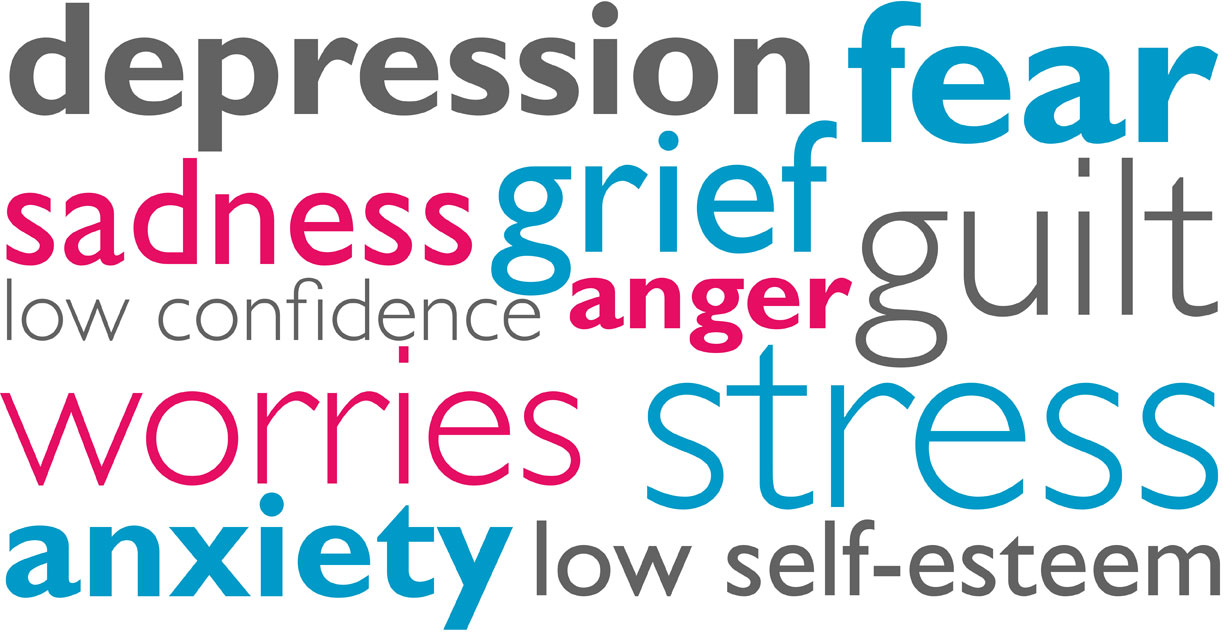
Mental wellbeing
Many people with epilepsy have emotional struggles and find it difficult to cope sometimes. And so do many people without epilepsy. Looking after your mental health will benefit your overall wellbeing.
Ups and down are part of everyday life. Everyone experiences happiness and sadness and a whole range of things in between. Most people would say they prefer to be happy than sad, but negative emotions have a purpose. They are often telling you that something isn’t right and can act as a prompt to change something.
Negative emotions can become a problem if they go on for a long time or you find it difficult to handle them.

Resilience
Have you ever wondered why some people are able to cope with whatever life throws at them, while others find it more difficult? Experts think that some people have more resilience than others. Resilience is your capacity to deal with challenges and bounce back from setbacks. If you are finding it hard to cope you are not alone. Next we are going to share some ideas to grow your resilience.
Watch
Here’s a short animation about resilience by AXA PPP healthcare
Increasing your resilience
It is possible to grow your resilience by trying some of the things below:
-
Find ways to help you cope with pressure and stressful situations
- Try and be more assertive
- Try relaxation techniques
- Find a hobby or interest that you enjoy
- Spend time with friends
-
Look after your physical health
- Get enough sleep
- Get active
- Eat healthily
-
Be kind to yourself
- Recognise your achievements, no matter how small
- Don’t be hard on yourself – nobody’s perfect
- Take a break
- Get out in nature or have a change of scene
-
Get support
- From your friends and family
- At work from your manager or colleagues
- At school, college or university – From your tutors or other students
- From other people with epilepsy
- From Epilepsy Action
- Online – Take a look at the page of positivity. It’s full of quotes, stories and videos that other young people have submitted
- See your GP if the problems continue

Do something
Over the next week, try one of the ways above as a step to help you cope with struggles.
Watch
Although some people find their epilepsy limits what they can do, others say it’s had a positive impact that they didn’t expect
How did it feel to read the above? Did it feel overwhelming or that you might never be able to do these things on your own? Then self-help might not be enough for you.
When to get additional help
It’s quite common for people with epilepsy to have low mood, depression or anxiety. You are not alone and you can get help.
If self-help ways for coping with struggles are not enough, you may benefit from some additional help. The NHS has a mood self-assessment quiz which is based on the questions that a GP would ask you to find out how you’re feeling. It can identify if you would benefit from additional help in coping with stress, anxiety or depression.
Talking therapies
Some people find talking therapies such as counselling helps them deal with stress, depression and anxiety. Talking therapies can take place face-to-face, individually or in a group, over the phone or by email. Your doctor may offer you talking therapies through the NHS. In some areas of England you can refer yourself without seeing your GP. This is offered through Improving Access to Psychological Therapies (IAPT). Visit the NHS website to find your nearest IAPT service. Alternatively, you can pay privately to see a therapist or counsellor. The Counselling Directory and British Association for Counselling and Psychotherapy have details of counsellors in the UK.
If you’re under 18
Mental health services for children and young people are different than for adults. Child and adolescent mental health services (CAMHS) is the NHS service that provides support to people aged under 18. Most CAMHS have a website to find out how to access their service. Young Minds has a guide to CAMHS
If you need urgent help call NHS 111 or the Samaritans 116 123
Stories by you
Watch Derrick’s video about mental wellbeing and what he does to look after himself.
Read about the struggle Tayybiah had with accepting her epilepsy and what helped her to overcome epilepsy
Read about the challenges that Aaron faced and the changes that helped him

More info about specific conditions
These pages have more information about specific mental health conditions and things that can help.
Get support
As well as NHS services you might find there are groups and local organisations that provide support where you live.







